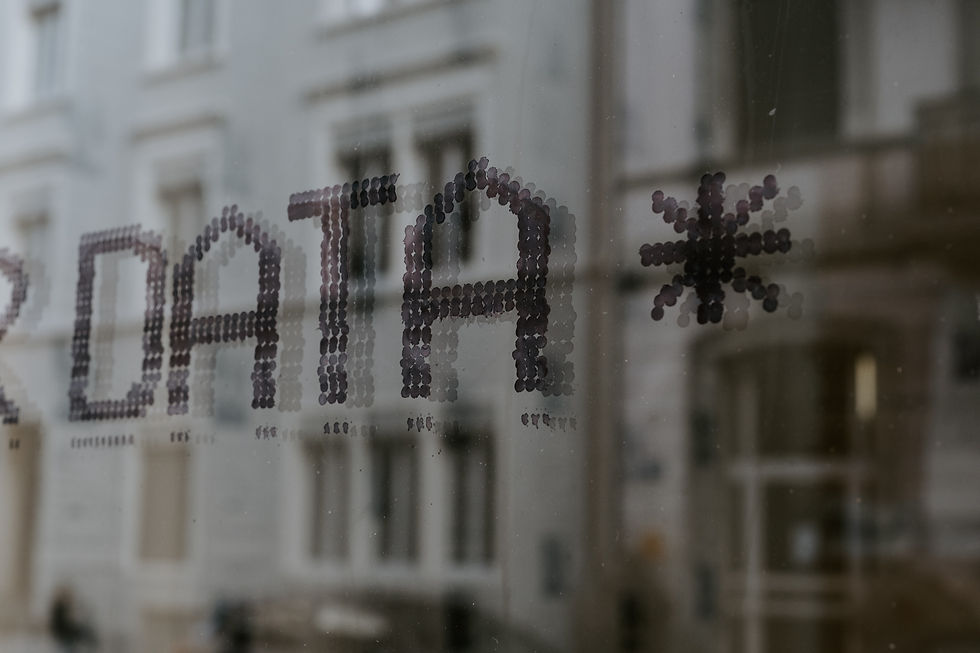Kashmir and internet shutdown: A missed opportunity by the Indian Supreme Court
- CUHRLS
- May 4, 2020
- 4 min read
Updated: Aug 14, 2020
By Aishwarya Jain, National Law School of India University, Bangalore On August 5, 2019 the ruling Bharatiya Janata Party, imposed Section 144 of the Code of Criminal Procedure (‘CrPC’) in Kashmir, suspending and imposing a blanket ban on mobile, broadband internet, cable TV services citing “maintenance of law and order” issues. This was followed by the abrogation of Article 370 that granted special status to the state of Jammu and Kashmir. The state suspended the internet in the valley for almost six months until the Supreme Court (‘SC’) ruling in Anuradha Bhasin on 10 January 2019. The judgement is commendable for recognising some of the most progressive stance. It held that any indefinite suspension of internet is impermissible under the Temporary Suspension of Telecom Services Rules, 2017 (‘Rules’). It read principle of proportionality under Section 144 and held that powers under the section cannot be used to supress democratic rights. It also held that successive imposition of the orders under the section will amount to abuse of power. It held that the constitutional right under Article 19 (1) (a) and Article 19(1) (g)(which protects right to freedom of speech and expression and the freedom to practice any profession or carry on any trade, business or occupation) is protected over the medium of internet also. It also noted that the internet shutdowns cannot be for indefinite period and all orders of such shutdowns must be in public domain.
While the judgement is landmark in its observance on web-based commerce, requirement of transparency from the state and restricting the power of the state under S.144 it still falls short of India’s obligations under International law. It fell short of observing and holding that access to Internet itself amounts to fundamental right and part of freedom of expression. The court missed an opportunity to rule on the legality of internet shutdowns in the biggest democracy which had the highest number of such shutdowns in 2017-18. Further, even though the SC said that the internet shutdowns can only be for temporary and necessary duration and will be subject to judicial review it did not provide any remedy or relief to the Kashmiris. The state submitted that the measures of internet shutdown were not meant to be indefinite, however, the shutdown continued for almost six months. The court failed to lay down what qualifies as ‘temporary’ shutdown. The court even though ruled for restricting the state’s power it did not strike down the internet shutdown in Kashmir as illegal and violative of human rights. It merely asked the review committee under the Rules to review the temporary shutdown order. In doing so it left the fate of the Kashmiris to be deliberated upon by the same state which imposed this temporaryshutdown. This will lead to a chilling effect on the free speech of the Kashmiris over internet.
Kashmir has had wide spread and unabated violation of human rights by the state. The report (from July 2016 to April 2018) of the UN Office of the High Commissioner for Human Right on the situation of Human Rights in Jammu and Kashmir notes multiple human rights violations that have been caused by the Indian state. For instance, measures like AFSPA (Armed Forces Special Power’s Act, 1990) and PSA (Public Safety Act, 1978) have provided immunity to the military and state causing violation of rights in the valley. There have been acts of mass rapes, sexual violence and arbitrary action by the military with impunity. There has been no accountability of these incidences. Internet is possibly the only medium over which Kashmiris can express and inform about the atrocities committed on them. It therefore became important that the highest judiciary in the country recognises them as political subjects with political and fundamental right to internet.
It is not the first time that Indian courts have been faced with the issue. In decision like Sabu Mathew George (2017) the court has upheld citizen’s right to information through electronic media. In a recent judgement in Faheema Shirin (2019)the Kerala High court upheld the right to internet is a fundamental right and a tool to ensure right to education. It said that the freedom of expression included freedom to be informed and feeling of protection of “expansive connectivity”. This is in consonance with Article 19 of the UDHR and General Comment No. 34 of the ICCPR which requires State Parties to ensure access to the internet. The courts’ observance on internet as a tool to ensure education also concords with the General Comment No. 13 of the ICESCR which recognises computer facilities as being essential to the right to education. The SC, however, failed to learn from these decisions. The judgement will be a significant one in the Indian jurisprudence. While it did not provide any immediate relief it will influence future litigation on arbitrary state action, compensation for loss of web-based commerce and pending cases on mass imposition of such shutdowns during the anti-CAA protests in India. Nonetheless the SC missed an opportunity to recognise that the access to information and communication technologies constitutes basic human rights and must be available to everyone. Merely recognising economic freedom over internet is not sufficient. Internet is a voice for minorities across the country and ensures civil and political freedom. With the advent of technology and Indian government’s agenda of digital India it is about time that the apex court declares access to internet as a fundamental right and catches up with India’s international obligations.




Comments